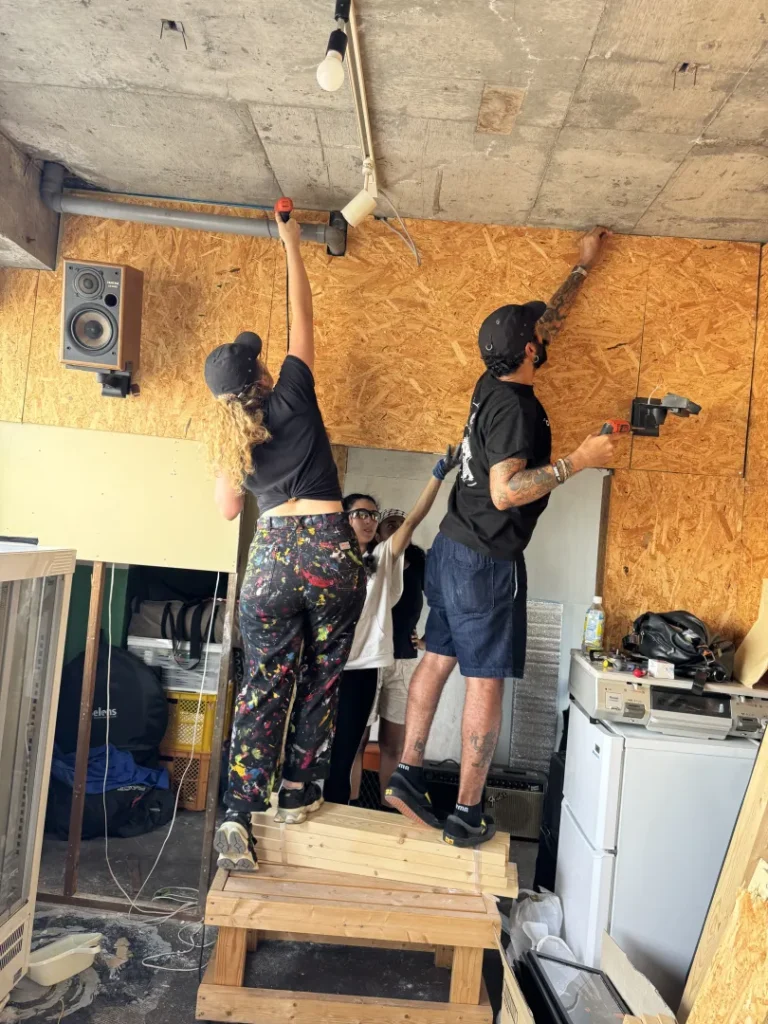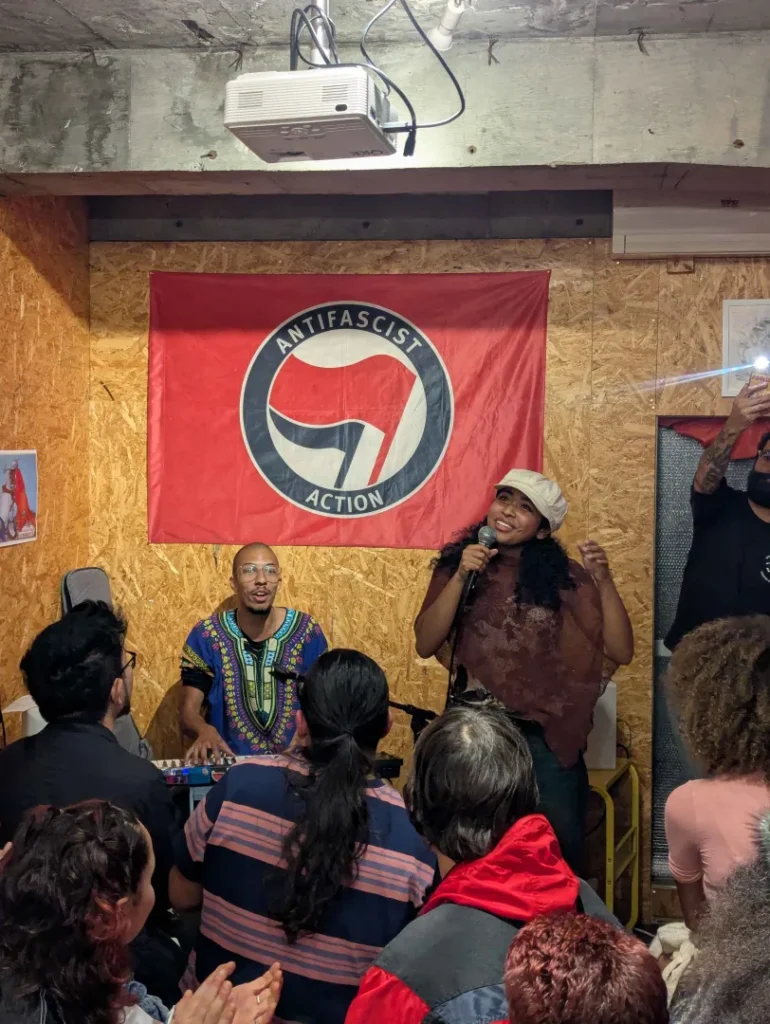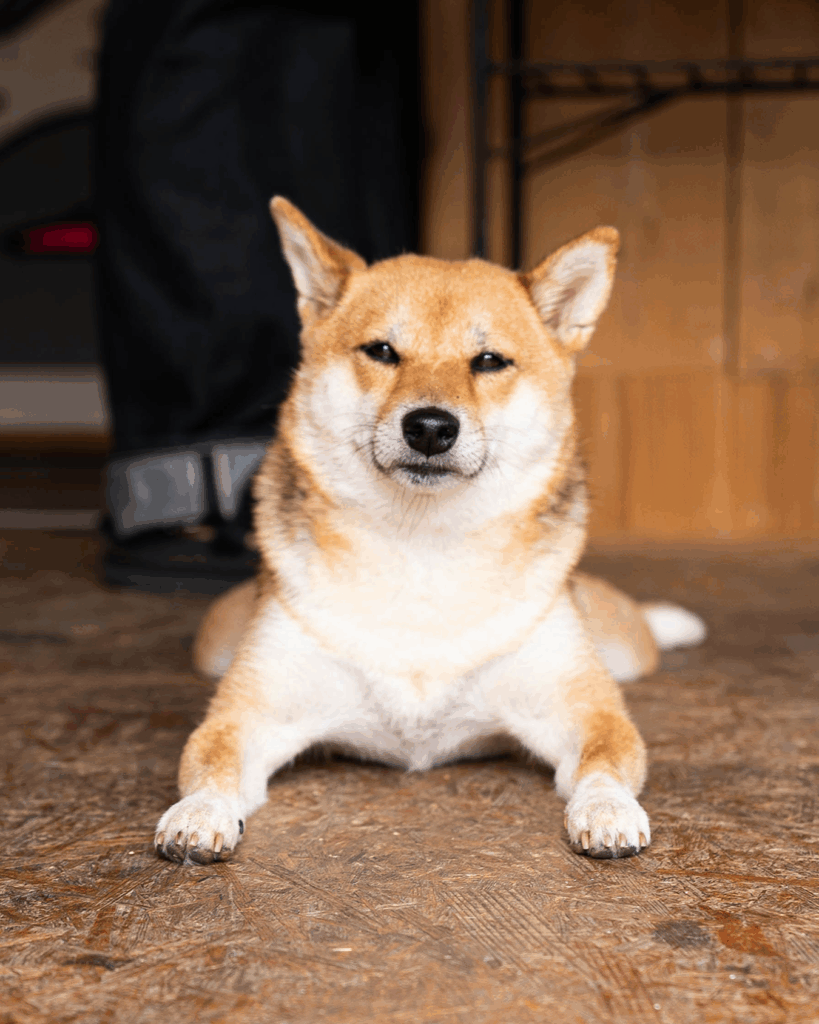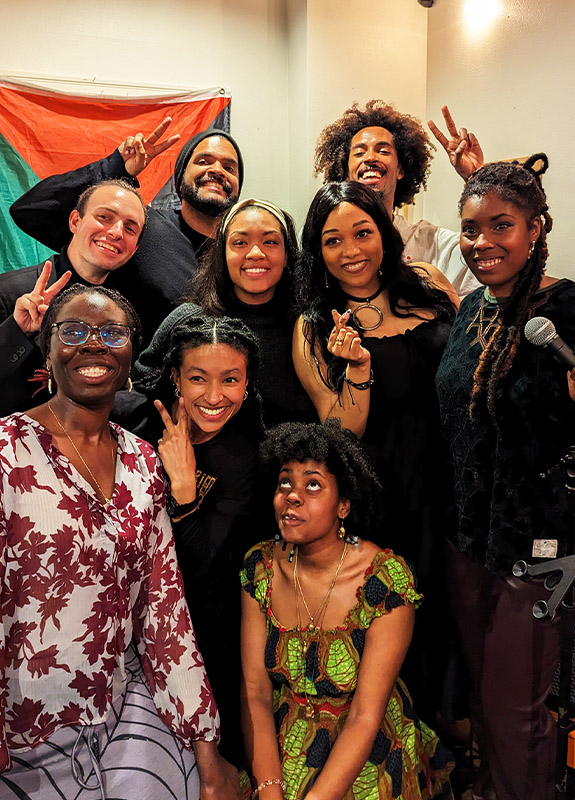Take from the pages of Organise 101, here is a short QnA with Nadina from Tokyo's NAMNAM space. Heya Nadina thanks for taking the time to talk to us about NamNam Space, you mentioned you were a scouser while we were setting this up, how did you end up being an organiser in a social space in Japan? I initially took a one year working holiday to Japan right before COVID. Stuff for the LGBTQ community in Tokyo is really centred around nichome (the gay quarter) - it’s very nightlife based and very cis-gay man oriented for the most part. My friends and I felt that didn’t reflect our lives, and COVID really emphasised the lack of other options - so we started doing meetups for queer people that offered something different. Book exchanges, picnics, art fairs etc. We would often host them at Cafe Lavanderia in nichome, which was an anti-fascism & music themed venue. When that was shut down due to gentrification, we kinda thought ‘hey, there’s a need for this, and we’re capable of doing it, so fuck it let’s do it.’ … and what is NamNam space? How did it come together? How many people run the space and how many people use it? Practically speaking, how did you go about forming a collective and how did you find a space? What is the local history with Queer autonomy and Anarchism like? What is your relationship like with other groups in the area? What does an average day at NamNam look like? The best days are the ones where we run an event and get to spend time with the community that has given us so much love. Or someone tells us that what we do is meaningful to them. When we’re not running an event, the atmosphere is pretty chill; we open up, clean out the coffee machine, put on some tunes. Our spiritual leader Kinako will be there, eating dog treats, and people will slowly come in from all over. We hang out, talk about current events, chill on the balcony. It’s homey. People come in as strangers and leave as friends. What are the current aims, what's next on the agenda? One of my personal little dreams, aside from sustainable running of NAMNAM, is also to begin running as a mutual aid fund - I wanna be able to help support homeless queer teens in Tokyo, contribute to people’s top surgery funds, send money to families in Gaza etc. What are you looking to achieve long term?
Divine timing, I guess? I’ll try to give you the bullet points but I've been a community organiser for over 10 years now, beginning as a community admin for Japanese fashion meetups in the North West of the UK.
NAMNAM Space is a queer space in Koenji, Tokyo, that runs on anarchist principles. Thanks to our connection with Cafe Lavanderia and a very successful crowdfunding campaign we were able to fundraise to rent and furnish a venue, and we’re entirely volunteer run. We have various aims that are best summarised as lowering the barrier of entry on opportunities for queer people, as well as those who support social justice and leftist thinking. We’ve given a lot of people their “firsts” such as first art exhibition, event-organizer experience, first audience for their poetry etc. It’s a space for the community that might not find space anywhere else.
Right now we have a core team of 9 very dedicated members, and a wider network of occasional ‘volunqeers’ and helpers. People really care about it, I’m constantly humbled by that. It’s hard to say how many people use it, we have a bunch of regulars who come for the chill open days we do on Friday & Saturday, but when we have a big event the place gets packed out.
What's the political make up?
We operate from an anarchist framework but do not demand that staff, volunteers, or community members adhere to any specific political ideology. Of course there are shared values at the heart of our project, including but not limited to anti-capitalism, transnational solidarity, queer liberation, etc. The methods to which individuals work towards those aims are not the exclusive purview of our space. Rather, we seek to provide a gathering place where groups and individuals pursuing these political aims can strategize, educate, and connect with one another.
It wasn’t a formal procedure - just a lot of conversations with aligned thinking, opportunism and knowing a guy who knows a guy who has a place to rent. A lot of “wouldn’t it be funny if…” followed by doing the thing we said would be funny. Right place, right time.
Japan has a robust leftist history and a robust queer history, but these movements have not been linked in a significant way until fairly recently. The Palestine Solidarity Movement in Tokyo since October 7, 2023 has brought together the queer community and the existing left in an unprecedented way.
How you found is difficult to organise as a Queer Anarchist community?
Many of the challenges we face are not unique to queer community or to anarchist organizing, but rather to the practical challenges of managing a physical space (e.g. paying rent, cleaning, making nice with neighbors, etc.). Beyond these challenges, we have yet to encounter existential challenges or obstacles. Minor challenges have arisen, unsurprisingly, from the heterogenous community we serve who do not share uniform needs or opinions about what we do. We receive ample feedback, not all of which is delivered in good faith. Criticism is natural and healthy, and even when the critiques border on unreasonable or hateful, we are able to handle them as a team.
To get into Koenji you kind of have to have good relationships in the area. We are particularly lucky to have many close friends around us, with special shout-outs to Andhika at Substore, Sacco + Sophie at Uptown Records and Daizo at TKA4. If we’re not just talking about Koenji, there’s so many other groups and individuals to thank we’d be here all day.
For most of us an average day takes place on our laptops and phones. For me, I slip NAMNAM work in whatever moments I can find around a full time job, studying japanese, doing my own creative work, buying groceries, going to protests, trying to remain sane while the world burns etc. I manage a lot of our digital infrastructure because I have those skills; running our instagram posts & DMs, website and file storage, updating discord. I do a lot of our design. I guess you’d call it all marketing.
Right now we’re working to reach a point of comfortable financial sustainability. Rather than worrying about rent, we want to invest our talent and energy on doing impactful work. We don’t wanna think too much about money, but we’d also like to be able to run as a cooperative model and be able to provide more financial support for our organizers and the wider community.
Art, anarchy and queerness, baby.

Organise!
Friday 13.6.2025